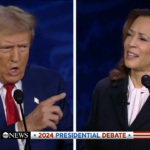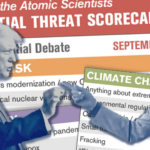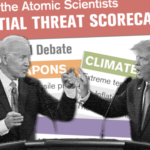The man who declared the ‘end of history’ fears for democracy’s future
By Dan Drollette Jr | February 13, 2017
In a few short years just over a quarter-century ago, the Berlin Wall fell, the old Soviet Union collapsed, and the Bulletin was able to set the hands of its Doomsday Clock back farther than ever before: 17 minutes to nuclear midnight. The world seemed to breathe a general sigh of relief, expressed most memorably in the words of a State Department official/academic as “the end of history.” In an oft-quoted, 16-page article in The National Interest, Francis Fukuyama expounded on this idea that the liberal, laissez-faire, capitalist democracies of the West had triumphed in the brave new globalized world —and because of this victory, there would be no more struggle, and hence nothing more to put in the history books. (To over-simplify: No conflict, no history.)
So, what does Fukuyama think now, after the havoc of the Great Recession, Brexit, the rise of authoritarian states like China and Russia, and the rise of right-wing nationalism on both sides of the Atlantic?
In this phone interview with The Washington Post Fukuyama re-examines his original thesis, and said: “Twenty five years ago, I didn’t have a sense or a theory about how democracies can go backward … And I think they clearly can.”
He goes on to cite the deep structural reasons for this decline, but also calls for patience, not panic. “We don’t know how it’s all going to play out,” Fukuyama said.
Or, as Fukuyama put it in an essay he wrote on January 23 in Politico: “… as a political scientist, I am looking ahead to his presidency with great interest, since it will be a fascinating test of how strong American institutions are … [W]e are embarked in a great natural experiment that will show whether the United States is a nation of laws or a nation of men.”
Fukuyama concludes: “It is important to remember that one of the reasons for Trump’s rise is the accurate perception that the American political system was in many respects broken—captured by special interests and paralyzed by its inability to make or implement basic decisions. This, not a sudden affinity for Russia, is why the idea of a Putin-like strongman has suddenly gained appeal in America.”
Publication Name: The Washington Post
To read what we're reading, click here
Together, we make the world safer.
The Bulletin elevates expert voices above the noise. But as an independent nonprofit organization, our operations depend on the support of readers like you. Help us continue to deliver quality journalism that holds leaders accountable. Your support of our work at any level is important. In return, we promise our coverage will be understandable, influential, vigilant, solution-oriented, and fair-minded. Together we can make a difference.
Topics: Special Topics, What We’re Reading















